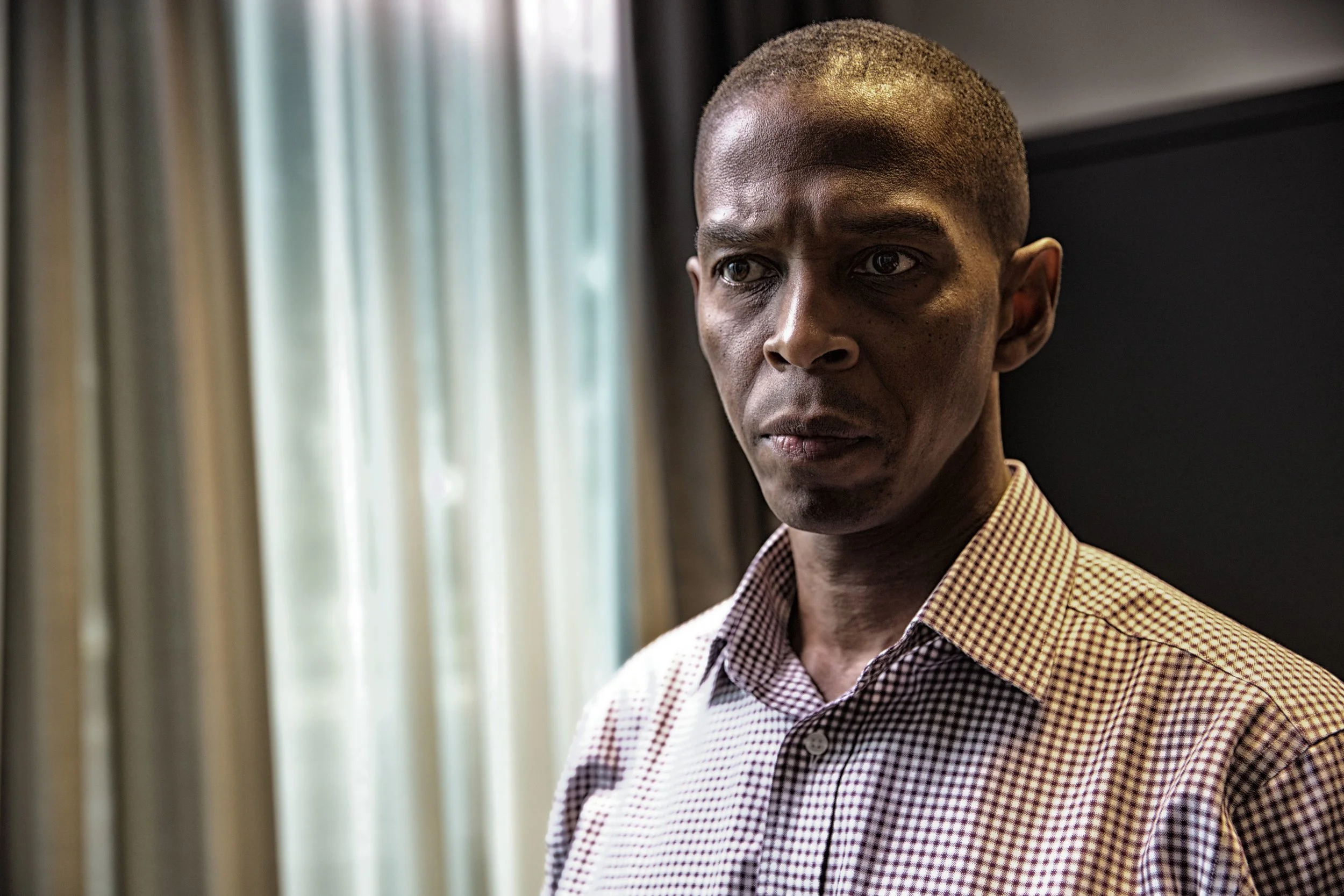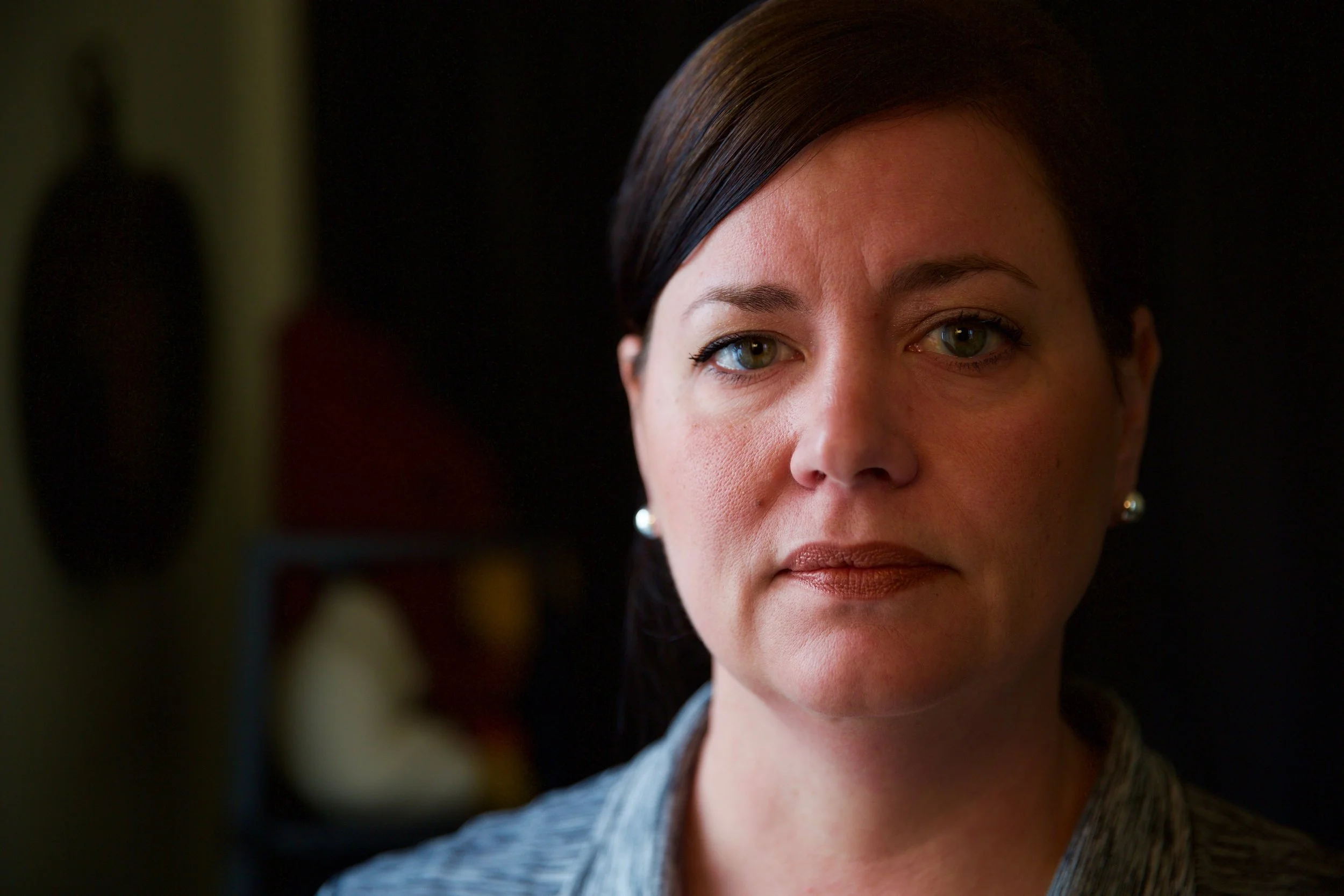Richmond Justice
STORIES + PORTRAITS
Dave | January 15, 2016
Dave Coogan is an associate professor of English at Virginia Commonwealth University and the founder and co-director of Open Minds, a program that offers college-level arts and humanities courses at the Richmond City Justice Center. He is also the editor of a recently published collection of first-person narratives, Writing Our Way Out: Memoirs from Jail, which springs from his work with incarcerated writers in Richmond.
With Open Minds, we open up the big questions that the arts and humanities should address. What is the purpose of our lives together? Why haven’t we been together before? How have we created a society that separates so many people? When you sit in a room full of prisoners and college students, you come to see pretty quickly how much we all have in common, how much we haven’t been able to see, and how much we haven’t been invited to see. We aren’t often given the opportunity to talk across the distances that divide us from them. Yet there really is no us and them. There’s only us. We sit, in community, in peace, together, to figure out how we all got there—and where we’re going.
Years ago before I started Open Minds, there was a violent crime in the community where I live. Four teenagers attacked a young woman and her boyfriend. Months later, after their attackers were caught, the woman asked, “Why would they do this? Why would they ruin their lives?” I thought, if she can ask that, then shouldn’t the rest of us be asking? I knew that in my capacity as a writing teacher I didn’t know how to solve the problems of policy. But I wanted to put my profession to the test. Does an educated writer become a more thoughtful, compassionate citizen with agency? That’s how we describe the benefits of literacy. I wanted to put that into action, building a community that would be a testing ground for the theories of the profession—and, in that way, close the gap between the university and the community.
“There really is no us and them. There’s only us.”
I first went to the jail to inquire and to learn as much as I went to teach. And I learned a lot. It changed my life. I was sidling up to criminals, prisoners—and it took me a couple of weeks to realize that anyone who is incarcerated is so much more than any one label. Just as they had preconceived ideas of me, I had notions of them—and we all learned to break that down.
When I offer up a writing assignment, I might say, “Tell a story about when you prevented violence.” In response to that assignment, a guy told me about a time his buddy was upset. The friend was spouting a string of profanities about an altercation with someone, and said, “I gotta kill that guy.” The prisoner in my class told his friend, “Hey, you gotta calm down, you gotta chill, you gotta go home and rest. It’s not that bad—it’s not gonna be worth going through all that.” But his friend did commit violence. Twelve years later the friend is released from prison and tells my student, “I should have listened to you.” This is the point of the assignment—to get people to think about when they have done the right thing. I don’t know why this guy is in jail right now, but I know that in that moment he did the right thing. Too often, we don’t take the time to consider that people who are incarcerated have the same instincts as us—to resolve conflict, to keep the peace. We’ve grown intolerant, incurious, in a hostile way, to understanding our common ground. We would much rather believe in a “them” than look carefully at ourselves. The "our" in the title of our new book, Writing Our Way Out, addresses this.
The book is a testament to this power of positive thinking and collaborative dreaming about the possibilities in life. Writing Our Way Out has been very warmly received. The stories confront the problem of how we reached a point of incarcerating huge numbers of people. And they offer at least one model for how we can all write our ways out of the problem by believing in ourselves and in the power of community. The main character in that book is not me and it’s not any of the guys: it’s writing. It’s what writing does for us. Writing brings us together in community. We can do so much more together than we can alone.
—interviewed December 15, 2015
















